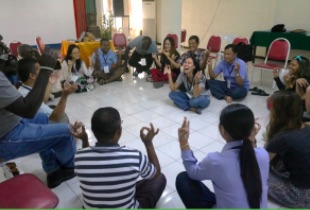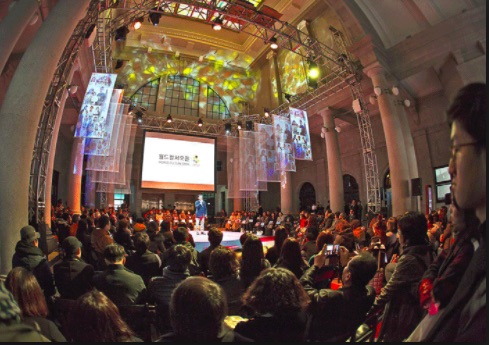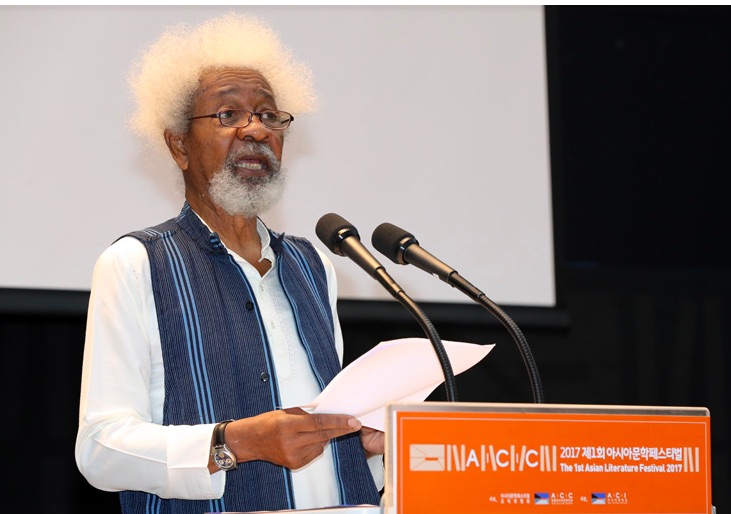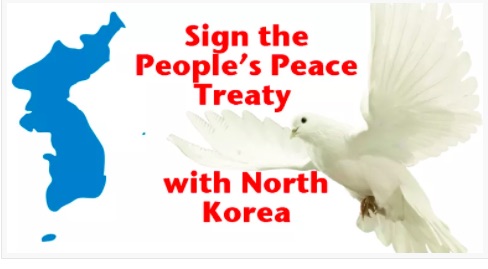. . WOMEN’S EQUALITY . .
An article from the Nobel Women’s Initiative
Nuclear disarmament activist. Australian activist Felicity Ruby was the first staff member and coordinator of the International Campaign to Abolish Nuclear weapons (ICAN). ICAN was awarded the 2017 Nobel Peace Prize for “for its work to draw attention to the catastrophic humanitarian consequences of any use of nuclear weapons and for its ground-breaking efforts to achieve a treaty-based prohibition of such weapons.” Felicity is now pursuing her Ph.D. at Sydney University.
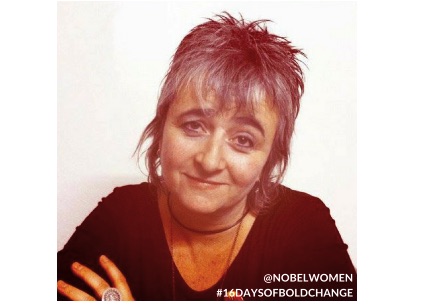
Photo courtesy of Felicity Ruby
What did you feel when you heard ICAN had won the Nobel?
Joy and surprise. Coincidentally, I was dining with Dave Sweeney, an ICAN board member, and we were quickly joined by Dimity Hawkins, the driving force behind getting ICAN off the ground. We made so much noise! And called rooms of people in other countries to make even more noise!
How did ICAN begin?
The Medical Association for the Prevention of War, the Australian chapter of the International Physicians for the Prevention of Nuclear Warfare (IPPNW) drove ICAN’s beginnings. The idea was to reinvigorate the anti-nuclear movement, which had decades of incredible work behind it, but needed a new umbrella to unite efforts and a new approach to bring younger generations into the debate.
We secured IPPNW’s support and funding from the Poola Foundation, and began a global effort to agitate for nuclear disarmament, with new slogans, visuals, demands, alliances, audiences and strategies.
How was this new approach to disarmament different? Was it influenced by the International Campaign to Ban Landmines, which won the Nobel Peace Prize in 1997?
We were in many respects saying ‘lets do a landmines effort on nuclear weapons.’ How? By building a new, enduring, intelligent and strategic NGO coalition united around a simple demand: a Nuclear Weapons Convention – that is, a proposed multilateral treaty to outlaw nuclear weapons. Spearheaded by the medical professionals, who emphasized the very real impact of radiation and nuclear militarism on human health, we brought in networks, constituencies and professionals from around the globe.
How did you help build ICAN into a mass movement?
Understandably, the anti-nuclear movement had a fairly chronic humour deficiency. For me the real magic sauce was our determination to stigmatise nuclear weapons using humour, hope and horror in fairly equal quantities. We also organized global days of action, held awareness-raising events, shared the testimonies of survivors from Hiroshima and Nagasaki and engaged in advocacy at the United Nations and in national parliaments.
(Article continued in right column)
Question for this article
Do women have a special role to play in the peace movement?
(Article continued from left column)
It was important that ICAN was an invitation to an exciting new project, not an instruction. There was freedom for groups to use the disarmament education materials we created in their own ways. The message that change is possible was carried in the very name of the campaign, which projects the distinct and very likely possibility that human beings can eliminate nuclear war and evolve past the social behaviour, economic habit and political practice of nuclear violence.
You’ve spent a great deal of your professional life in a variety of disarmament efforts. What specifically drew you to this issue?
It’s a no brainer. The arms industry absorbs the very resources we need to address all of the world’s environmental, social and economic problems. The choice is between weapons that kill and mutilate and a decent, just society.
You’ve long advocated a specifically feminist view of disarmament.
Gender analysis provides some important tools that explain why weapons are valued, why states seek and keep them, and why leaders resort to the use of force to obtain policy objectives. Possessing and brandishing an extraordinarily destructive capacity is a form of dominance associated with masculine warriors (nuclear states are sometimes referred to as the “big boys”) and is more highly valued than feminine-associated disarmament, cooperation, and diplomacy.
The association of weapons with masculinity, power, prestige, and technical prowess has a direct effect on policy decisions. It remains a hurdle on the road to disarmament and nonproliferation – even though the idea that security can be achieved through weaponized strength clearly has not worked.
Last July, declaring that “nuclear weapons pose a constant threat to humanity and to life on Earth,” 122 nations – though not nuclear states — adopted the UN Treaty on the Prohibition of Nuclear Weapons. Does this mean that the debate is shifting?
The UN Treaty was a real moment of triumph. A large group of countries stood up and defied the nuclear weapons states. This is especially important at a time when escalating tensions around North Korea’s nuclear weapons make the danger even more apparent. We need to turn nuclear weapons to rust before they turn the earth to dust.
When you look to the future, what gives you hope?
The enduring courage of whistleblowers and activists, the enduring courage of activists standing up and organizing keeps my hope alive. So does spending time in nature. I now work in the field of technology and I’m inspired by those creating tools to put technology in the hands of people, not vice versa. I’m also working on my PhD dissertation, which focuses on social movements and am constantly inspired by these efforts to resist injustice.
I would tell activists keep going – but look after yourself, too. Activism should be joyful, and if you’re burnt out, you’re not helping any movement grow.
I truly believe that humanity can drag itself from the pit of war, racism and discrimination. Violence is not inevitable; it is a learned behaviour, from which we can and will – and must – evolve.
(Thank you to Janet Hudgins, the CPNN reporter for this article.)

